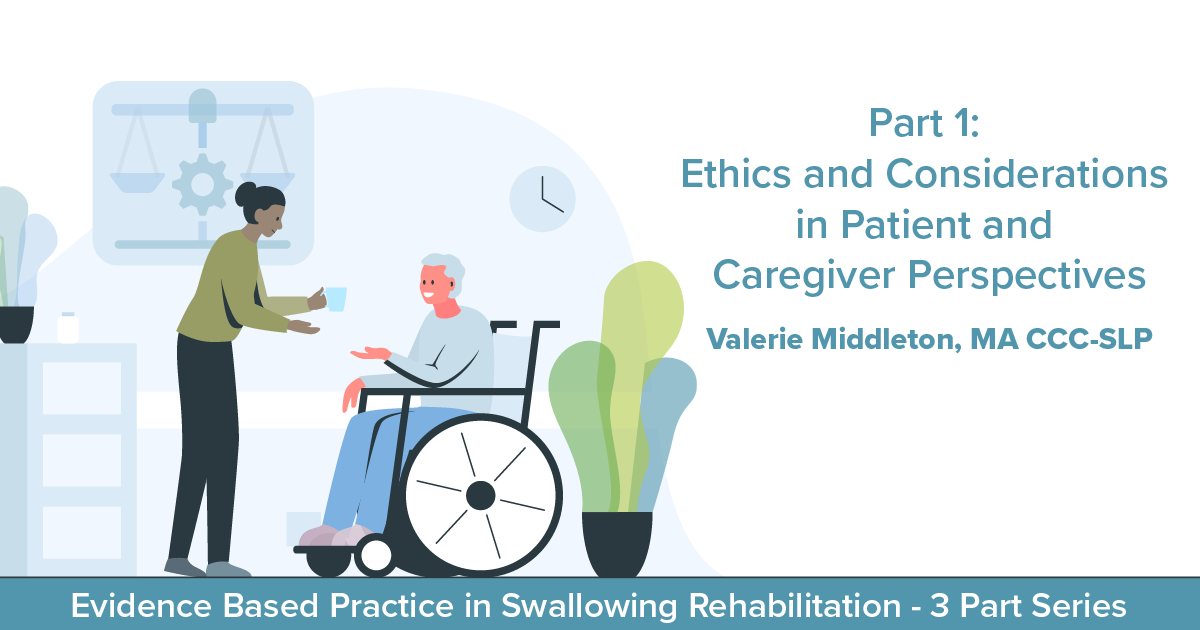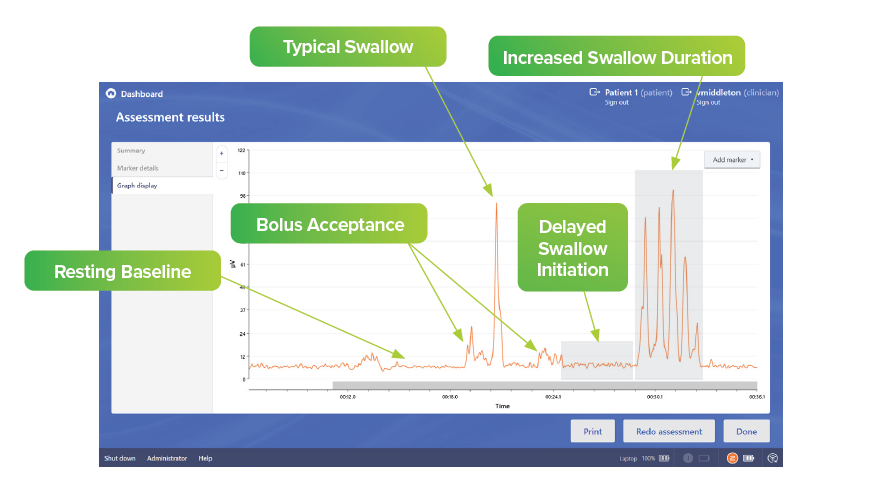Patient Information: Male, Age 91
Diagnosis: Parkinson’s Disease / Oropharyngeal Dysphagia /
COVID-19
History: This gentleman, a long-term resident of a skilled nursing facility, was diagnosed one and a half years ago with oropharyngeal dysphagia (difficulty swallowing), a complication of his Parkinson’s disease. Since that time he has had known aspiration (liquids entering the airway), altered diet, hospitalization for aspiration pneumonia, and COVID-19. Due to his complaint of his liquids being too thick, he requested to participate in swallowing therapy for possible return to thin liquids. As a result, swallowing evaluation and resultant therapy was initiated.


